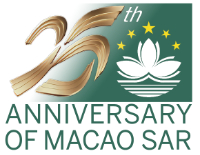Since December 1999, the Macao Special Administrative Region has been known for its remarkable economic development. Forbes ranked it second on a 2024 list of the world’s 10 richest jurisdictions by GDP per capita. It is also well known that the SAR has achieved a high level of political and social stability. Political stability, together with good governance, ensures that gaming enterprises and other businesses can reap all the upside from the economic boom in the city.
 What is less widely understood is how the SAR government has successfully used the Basic Law of the Macao SAR (MBL) and the Law on Safeguarding National Security, Macao’s national security law (MNSL) to maintain stability and safeguard national security. The 25th anniversary of Macao’s return to the motherland provides our think tank with an opportunity to discuss the roles played by the new constitutional order and national security legislation in helping Macao move on and scale new economic heights.
What is less widely understood is how the SAR government has successfully used the Basic Law of the Macao SAR (MBL) and the Law on Safeguarding National Security, Macao’s national security law (MNSL) to maintain stability and safeguard national security. The 25th anniversary of Macao’s return to the motherland provides our think tank with an opportunity to discuss the roles played by the new constitutional order and national security legislation in helping Macao move on and scale new economic heights.
As the constitutional document governing the implementation of the principle of “one country, two systems” in Macao, the MBL is modeled on the Basic Law of the Hong Kong Special Administrative Region. To a certain extent, it is also influenced by the Portuguese Constitution.
 After 25 years of successful implementation, the MBL has changed from an abstract legal principle to a concrete constitutional document. Navigating uncharted judicial terrain in the post-handover period, Macao has implemented the MBL effectively. One undeniable contribution of the MBL is its cardinal role in maintaining stability and promoting development in Macao. In fact, the guiding principle of the MBL is to maintain stability and promote development (Luo Wei Jian, A New Study on the Basic Law of Macau Special Administrative Region (Beijing: Social Science Academic Press)).
After 25 years of successful implementation, the MBL has changed from an abstract legal principle to a concrete constitutional document. Navigating uncharted judicial terrain in the post-handover period, Macao has implemented the MBL effectively. One undeniable contribution of the MBL is its cardinal role in maintaining stability and promoting development in Macao. In fact, the guiding principle of the MBL is to maintain stability and promote development (Luo Wei Jian, A New Study on the Basic Law of Macau Special Administrative Region (Beijing: Social Science Academic Press)).
The MNSL was promulgated in 2009. In accordance with Article 23 of the MBL, the security legislation aims at prohibiting any act of treason, secession, sedition, subversion against the Central People’s Government of China, or theft of State secrets, prohibiting foreign political organizations or bodies from conducting political activities in Macao, and prohibiting political organizations or bodies of Macao from establishing ties with foreign political organizations or bodies. There is no conflict between safeguarding national security and maintaining Macao’s rule of law.
We earnestly hope Macao chief executive-elect Sam Hou-fai will successfully promote economic diversification in this casino-dominated city. The Guangdong-Macao In-depth Cooperation Zone in Hengqin will be a key pivot to develop emerging industries and facilitate Macao’s integration into the Guangdong-Hong Kong-Macao Greater Bay Area
According to the late German jurist and historian Friedrich Karl von Savigny, the law as a persuasive fact of social life expresses a fundamental assumption about the society upon which it is imposed or in which it is accepted (FK von Savigny, Of the Vocation of Our Age for Legislation and Jurisprudence (NY: Armo Press)).
Macao is essentially a Chinese society deeply embedded in Confucian values. It is more “Chinese” than Hong Kong (Alberto Forchielli, The Grey Side of Macau). The close connection between Confucian values and collective interests appear to exercise a significant influence on the residents’ receptive attitude toward the MNSL. This helps explain why the MNSL has been smoothly implemented in Macao. The MNSL has never been invoked to charge any individual since its enactment in 2009.
The outbreak of the “black-clad riots” in Hong Kong in 2019 strengthened the argument that the MNSL is an indispensable safety valve to ensure the success of the “one country, two systems” principle in Macao. The 2023 amendments to the MNSL afford Macao better protection from the adverse influence of radical “democrats” in Hong Kong and foreign interference.
According to Macao authorities, the amendments enable the SAR to respond more effectively to future internal and external situations. The amendments include: 1) expanding the definition of secession to include acts carried out by nonviolent means, 2) widening the definition of sedition to include acts that incite participation in riots, 3) renaming the crime of “theft of State secrets” to “violation of State secrets”, and 4) changing the crime of collusion with “foreign political organizations” to collusion with “organizations outside Macao”.
According to Professor Victor Gao of Soochow University, Jiangsu province, the 2019 “black-clad riots” were the catalyst for the amendments to the MNSL. Though some critics argue that the amendments make the MNSL less liberal, our think tank is of the opinion that the amendments are necessary and reasonable. To highlight the importance of the MNSL, draftsmen aimed at transforming the MNSL from a specific criminal law supplementing the existing Macau Penal Code into a comprehensive national security law similar to the National Security Law for Hong Kong (Han Zhu, Macau and Hong Kong: Convergence or Divergence? An Analysis of the 2023 Macau National Security Law, Hong Kong Law Journal).
We earnestly hope Macao chief executive-elect Sam Hou-fai will successfully promote economic diversification in this casino-dominated city. The Guangdong-Macao In-depth Cooperation Zone in Hengqin will be a key pivot to develop emerging industries and facilitate Macao’s integration into the Guangdong-Hong Kong-Macao Greater Bay Area. With a vibrant constitutional order grounded in the MBL and with adequate legal safeguards against national security risks, Sam will not face much difficulty in accurately and comprehensively implementing the “one country, two systems” principle, safeguarding national security and supporting economic development. May success always follow Sam every step of the way.
The author is a barrister, part-time researcher of Shenzhen University Hong Kong and Macao Basic Law Research Center, chairman of Chinese Dream Think Tank and a district councilor.
The views do not necessarily reflect those of China Daily.


